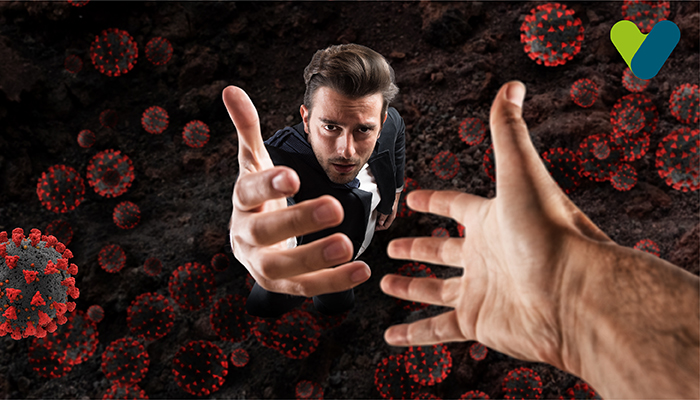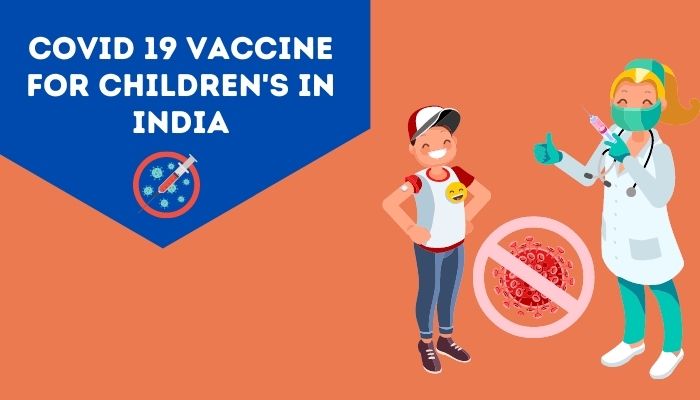We know Coronavirus Disease (COVID-19) as the coronavirus pandemic on the global level. By the end of December 2019 and the beginning of 2020, coronavirus had spread worldwide and come out as an emergency concern killing people's lives and affecting many. For the subsequent years, namely 2019, 2020, and presently in 2021 but COVID-19 has not left our lives yet. Just as we evolved our practices to deal with COVID-19 and came up with the vaccines, the virus also kept growing by introducing various variants and making the effects of COVID-19 life-threatening.
More than 254 million corona cases have been encountered in November of this year, and 5.11 million people have lost their lives. This undoubtedly made COVID-19 the deadliest pandemic in the history of humankind.
Since the pandemic has turned out to be deadly, our fear of getting COVID-19 has tremendously increased in several folds. The virus is transmitted by getting in contact in any way with the infected person. This has made corona myths widely prevalent in society, and people are unaware of them as false practices.
Let us look at some myths about COVID-19 transmission:
1. Using alcohol or chlorine spray on the skin kills the coronavirus of the body
There is a COVID-19 myth that when we spray alcohol or chlorine on the skin, it goes inside the body and kills the virus. It is not true because if it enters the eyes or mouth, it can have severe effects, and the spray-on skin causes harm to the skin. These products used on the outer surface of the body can't be observed like that and kill the virus present inside the body.
2. COVID-19 only affects people who are old and have underlying medical conditions
Coronavirus myth about only older people getting affected has turned many people because of their negligence towards COVID-19. COVID-19 can be transmitted to people of any age. More senior people can get severely affected as their immune systems are not as strong as the young people. They have underlying medical conditions like diabetes, asthma, obesity, blood pressure issues, heart problems, etc.
3. Children are not prone to COVID-19
It is a widely circulated myth that children are immune to COVID-19 and cannot get coronavirus. This is entirely not true as children are not immune, and many children have encountered COVID-19, and many of them are still suffering from COVID-19. In most cases, the severity of symptoms is mild to none.
4. COVID-19 is similar to flu
It is completely a COVID-19 myth that has impacted many people. COVID-19 is caused by the SARS-CoV-2 virus that causes an illness with flu-like symptoms. The symptoms are similar such as body fever, cough, cold weakness, etc. COVID-19 symptoms are similar, ranging from mild to severe and sometimes fatal. The coronavirus infection, as well as flu, can lead to pneumonia.
COVID-19 is more dangerous than flu. The mortality rate of COVID-19 is much higher than that of flu. In most cases, the fuel can be treated, and the person is well. Coronavirus cannot always be treated, and in some cases, it can be fatal and cause death.
5. All people who get COVID 19 die
This is entirely untrue. COVID-19 is fatal, and many people have lost their lives fighting the disease. It does not mean that every person who gets COVID-19 dies. According to WHO, more than 80% of the people who got COVID-19 do not need treatment in the hospitals as they have mild to no symptoms. By the time they get a test done, they are already recovered from COVID-19.
facts about Coronavirus diseases
- Alcohol best sanitizer spray is a method to kill the coronavirus on the surface level of the hands. It is not proven that it has antibiotic resistance.
- Alcohol-based sanitizers are safe for people of any age. It does not have any side effects on the skin and also reduces skin dryness.
- One can also eat food after applying sanitizer to their hands.
- It is safe to wash your hands and clean your hands through sanitizers now and then rather than wearing gloves. Wearing glass can affect the skin and cannot have the same effect as washing hands.
- People can use hydroxychloroquine to treat the symptoms of COVID-19. It is a drug used to cure malaria. People often believe that using hydroxychloroquine in COVID-19 does not prevent the illness. The purpose of the drug is not to fight the disease but to minimize the symptoms of COVID-19.
preventive measures to prevent coronavirus disease?
To avoid COVID-19, we can follow many simple ways and prevent the coronavirus disease as recommended by the CDC.- Do not touch your face and other body parts, specifically after touching some surfaces, as they can be contaminated with the virus.
- People who feel that they have mild symptoms of COVID-19 should also go for isolation at home.
- Until it is very much necessary, do not go out of houses.
- Sneezing should be taken into a show and thrown away immediately.
- Washing your hands and keeping them clean, carrying hand sanitizers everywhere should be a concern and followed religiously. People should wash their hands for at least 20 seconds.
- Watch everything that gets into the house from outside and try to be as hygienic as possible. If you go out of the house, then without touching anything, you should take a path to avoid the risk of contaminating our home and inspecting the other members of the family.
- These steps are straightforward to follow, and disciplined people would be able to stay away from COVID-19 by following these steps.


